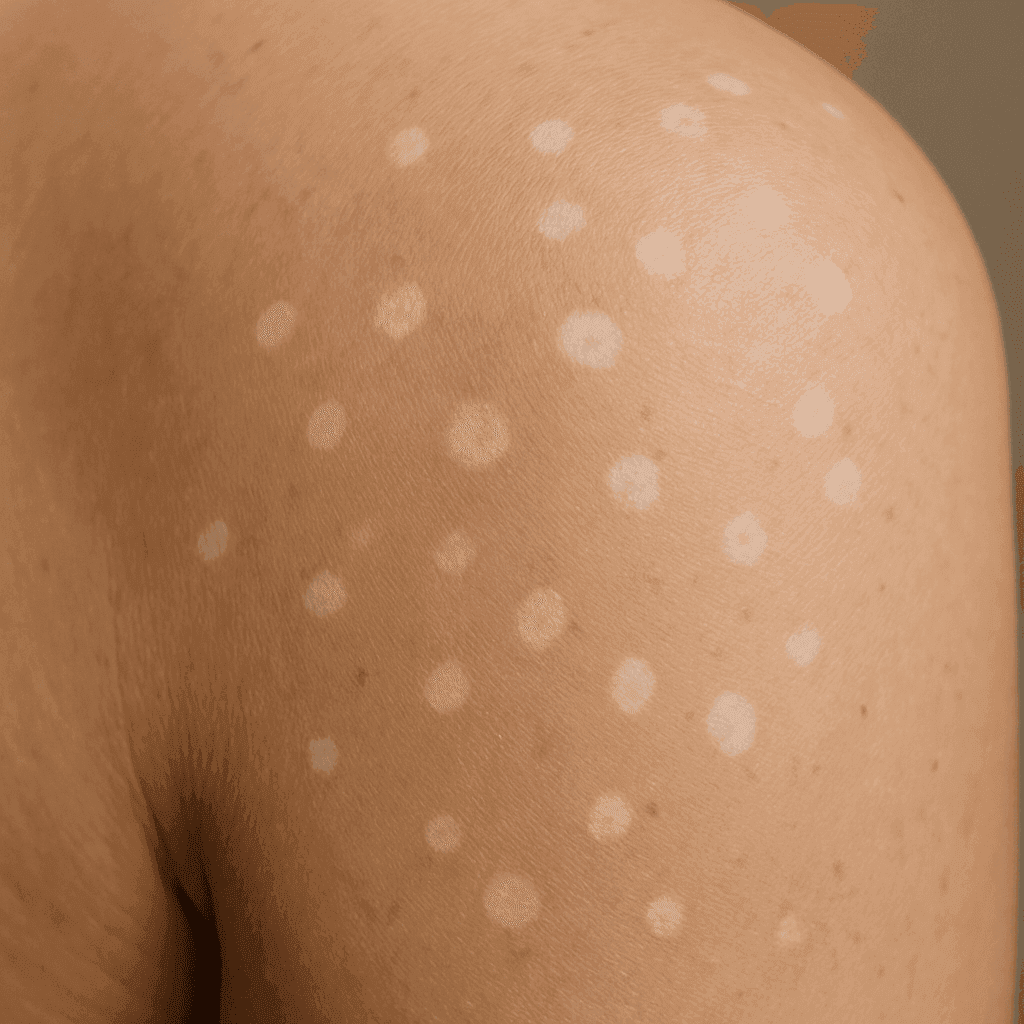White spots on the skin
Introduction
White spots on the skin are a common problem that can affect both children and adults. Although they are often harmless, they can be a source of concern due to aesthetics and the potential to hide more serious health problems. Understanding what these spots are and why they appear is key to an appropriate response and possible treatment.
Causes of white spots on the skin
Skin diseases
One of the most common causes of white spots on the skin is vitiligo, an autoimmune disease that causes a loss of pigment in the skin. Another condition is dandruff, caused by a fungal infection, which manifests as tiny white spots. Eczema, while usually associated with redness and itching, can also lead to the appearance of lighter areas of skin.
External factors
Excessive sunbathing, especially without proper sun protection, can lead to white spots. Also, allergic reactions to cosmetics or detergents can manifest in this way, as part of a larger skin reaction.
Internal factors
Vitamin deficiencies, such as lack of vitamin D or B12, can affect the condition of the skin, leading to the appearance of white spots. Autoimmune diseases, such as Hashimoto's disease, can also affect skin pigmentation.
Diagnosis of white spots on the skin
If you notice white spots on your skin that do not disappear or new ones appear, it is worth consulting a dermatologist. The specialist can perform a variety of tests, including a dermatoscopy or skin biopsy, to determine the exact cause. In some cases, tests for antibodies or vitamin levels may also be recommended.
Treatment of white spots on the skin
Pharmacological treatment
Depending on the cause of the white spots, a dermatologist may recommend the use of creams and ointments containing corticosteroids or other active substances. In some cases, oral medications are also used, especially when the spots are the result of a systemic disease.
Natural therapies
Some people opt for vitamin supplementation, especially D and B12, which can improve the appearance of the skin in some cases. Herbal medicine, such as the use of coconut oil or aloe vera, can also provide relief and improve the skin.
White spots on the skin in children and adults
The causes of white spots can vary depending on age. In children, they are more often caused by dandruff or atopic dermatitis. In adults, on the other hand, they can be the result of vitiligo or autoimmune diseases. It is important to consult a pediatrician in the case of children, who will select the appropriate treatment.
Preventing white spots on the skin
To reduce the risk of white spots, it's a good idea to protect yourself from the sun by using UV sunscreen creams and wearing protective clothing. A healthy diet, rich in vitamins and minerals, also promotes skin condition and can help prevent deficiencies that can lead to skin lesions.
Summary
White spots on the skin can have a variety of causes, from benign to those requiring treatment. It's a good idea to watch for skin changes and respond appropriately, consulting a dermatologist when necessary. With proper skin care habits and a healthy lifestyle, you can reduce the risk of their occurrence and keep your skin in good condition.

